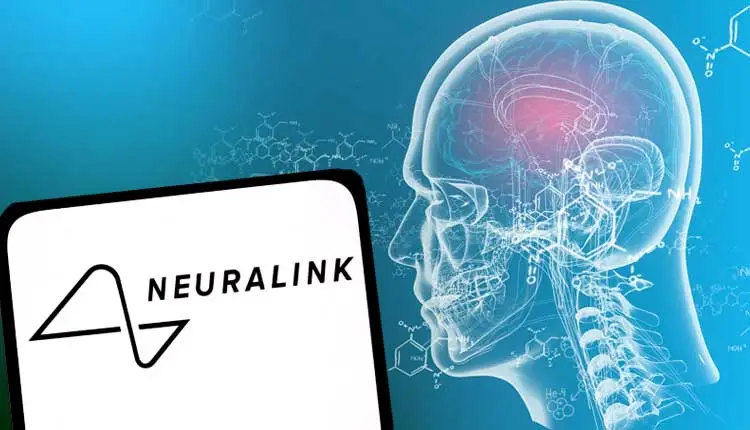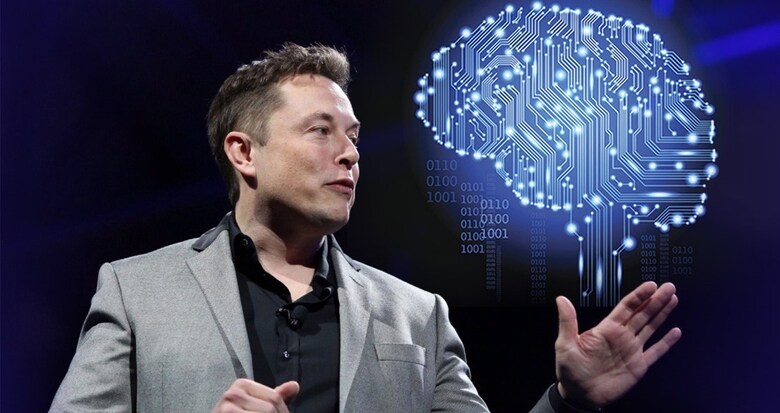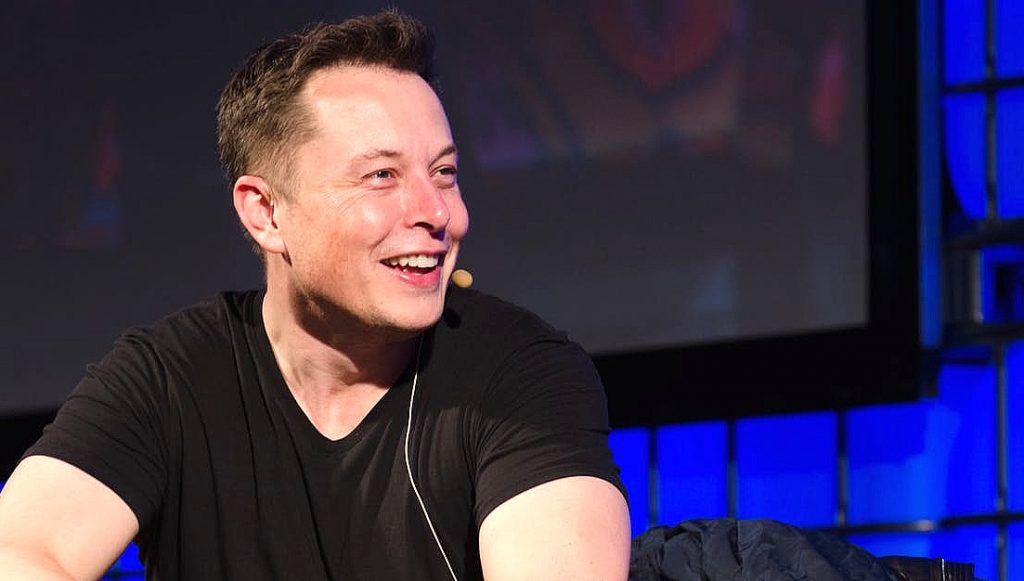What are the Pros and Cons of Elon Musk’s Brain Chip Neuralink?

I am a law graduate from NLU Lucknow. I have a flair for creative writing and hence in my free time work as a freelance content writer.

I am a law graduate from NLU Lucknow. I have a flair for creative writing and hence in my free time work as a freelance content writer.

I am a student pursuing my bachelor’s in information technology. I have a interest in writing so, I am working a freelance content writer because I enjoy writing. I also write poetries. I believe in the quote by anne frank “paper has more patience than person

I am a student pursuing my bachelor’s in information technology. I have a interest in writing so, I am working a freelance content writer because I enjoy writing. I also write poetries. I believe in the quote by anne frank “paper has more patience than person
Neuralink, a brain-chip business founded by Elon Musk, declared on Tuesday that it received permission from an independent evaluation board to begin hiring volunteers for the first human trial of its brain implant intended for paralyzed people.

The experiment will take into account those who have ALS (amyotrophic lateral sclerosis) or cervical spinal cord wounds that have caused paralysis, however, the precise number of individuals who will participate has not been made public. It is anticipated that the trial will last around six years.
The brain-computer interface (BCI) will be surgically implanted in the part of the brain that controls movement intentions as part of a Neuralink study. The initial objective is to empower.
Neuralink had initially planned to get permission to implant its gadget in ten patients.
However, due to concerns regarding safety highlighted by the US Food and Drug Administration (FDA), discussions with the agency resulted in a probable decrease in the overall number of patients. The precise number of patients who received FDA approval is not yet public knowledge.
Elon Musk has bigger plans for Neuralink, hoping to make it easier to put its chip devices during surgery to treat issues including obesity, depression, autism, and schizophrenia. However, experts agree that even if the BCI gadget proves to be safe for human use throughout this study, it may take the business over ten years to obtain commercial usage permission.
Neuralink had previously announced that it had gotten FDA approval for its first human clinical study in May. However, the business was already being investigated by the government for how it handled animal experiments at the time.
Beginning this human study is a critical turning point for Neuralink and a step closer to realizing Elon Musk’s ambition of cutting-edge brain-chip technology.
Also Read: AI Startup Corti Raises $60 Million to Take on Microsoft in Health Care
Based on a report by WIRED, it is now clouded since concerns have been raised regarding claims made by the multi-billionaire surrounding the deaths of monkeys used in Neuralink’s research. According to the article, a medical ethics organization has requested that the Securities and Exchange Commission of the United States (SEC) look into Musk’s assertions that the deaths of the monkeys had nothing to do with the implants made by Neuralink. The organization contends that veterinarian records show that implant-related issues were the real cause of the animals’ deaths.

I am a student pursuing my bachelor’s in information technology. I have a interest in writing so, I am working a freelance content writer because I enjoy writing. I also write poetries. I believe in the quote by anne frank “paper has more patience than person
After the company missed prior deadlines he had set, Elon Musk said on Wednesday that he anticipates a wireless brain chip developed by his company Neuralink to start human clinical testing in six months.

Elon Musk, a multibillionaire and the CEO of Twitter, stated on Wednesday that a wireless gadget built by Neuralink is set to start human clinical testing in six months. Neuralink is a neurotechnology company. According to Reuters, Musk stated that the restoration of vision is one of its initial intended uses.
The company, which has offices in Texas and the San Francisco Bay Area, has been involved in testing on animals as it waits for US regulatory approval for human clinical trials.
Read More: Elon Musk claims Apple has threatened to remove the Twitter app
Musk noted, “We want to be extremely careful and certain that it will work well before putting a device into a human. The progress at first, particularly as it applies to humans, will seem perhaps agonizingly slow, but we are doing all of the things to bring it to scale in parallel. “So, in theory, progress should be exponential.”
According to Musk, the Neuralink device’s first two human uses would be to restore vision and allow muscle movement in people who are unable to do so. Musk said, “Even if someone has never had a vision, ever, like they were born blind, we believe we can still restore vision.” A tiny device, electrode-laced wires, and a robot that removes a little portion of a person’s skull and inserts it into the brain are the components of the Neuralink product.
The event was initially scheduled for October 31 but Musk canceled it a few days early without providing a reason. More than a year ago, Neuralink gave its last public demonstration, which featured a monkey playing Pong on a computer.
Musk, who also owns the electric vehicle maker Tesla, the rocket company SpaceX, and the social networking site Twitter, is renowned for his aspirational plans to save humanity and colonize Mars. He holds the same lofty goals for Neuralink as well, which he founded in 2016.
He intends to create a chip that would enable the brain to control intricate electronic equipment, eventually restoring motor function to paralyzed persons and treating disorders of the brain including Parkinson’s, Alzheimer’s, and dementia. He also discusses combining artificial intelligence with the brain. However, Neuralink is going behind schedule.
In a 2019 presentation, Musk stated that his goal was to win regulatory permission by the end of 2020. Then, in late 2021, he declared at a conference that he wanted to begin human trials this year.
Current and former employees claim that Neuralink has routinely missed internal deadlines for obtaining FDA approval to begin human studies. According to Reuters, Musk approached rival Synchron early this year about a prospective investment after complaining to Neuralink staff members about their sluggish progress.
By successfully implanting its device in a patient in the United States for the first time in July, Synchron achieved a significant milestone. In 2021, it got regulatory approval from the US for use in human trials, and studies involving four Australians have been completed.

I am a law graduate from NLU Lucknow. I have a flair for creative writing and hence in my free time work as a freelance content writer.
On 29th August 2020, Elon Musk’s startup, Neuralink revealed a big experiment they are carrying out. The main source of the news is Reuters. Neuralink has put a coin-sized computer chip inside a pig’s brain for the past two months. The name of the pig is Gertrude and it is in the early stage of the experiment to analyze if the same concept can be applicable for human brains. According to Elon Musk, this can be a way to cure many diseases in the human body.
Neuralink is a neuroscience-based startup founded in 2016 by Tesla Inc and Elon Musk. Current experimentation of the company involves treating major human diseases by implanting wireless brain-computer interfaces. Musk delivered this news on a webcast last Friday. The timeline for human trials has not been mentioned yet.
Musk has given a presentation virtually and it is called “three little pigs” demo. The demo showed Gertrude, the pig whose brain has been implanted with the computer chip in a position that controls the snout. After some coaxing by Elon Musk, it began performing some activities like eating off a stool and sniffing the straws which led to show striking changes in the graphs monitoring the neural activity.
Musk also revealed that the experimentation has been carried out in three such pigs having two brain implants each. The implanted pigs are physically indistinguishable from any regular pigs and there are no abnormalities in them. Moreover, the pigs with implantation have shown greater accuracy in limb movement during a treadmill run. The conclusion has been reached using the implant data. These pigs are now often described as “Cypork”.
Previously, Musk has mentioned about the human trials beginning at the end of this year. But, on Friday, Elon Musk has not mentioned any specific timeline for the beginning of the human trail. Dr. Matthew MacDougall, the head surgeon of Neuralink said that the first clinical trial on humans will focus on a small group of patients suffering from paraplegia or paralysis. The company also confirmed that it has made many great innovations for the past four years and the long studies have come to an end. This might mean that the trails will begin shortly since the implantation in animals has shown positive results.

Elon Musk has said the implantation device can solve many actual diseases in the human body like memory loss, hearing aid, depression, and insomnia. There are thousands of electrodes present in the computer chip which interacts with the human brain to cure complex neurological problems. Severe conditions like Alzheimer’s disease, dementia, spinal cord, injuries, etc can be cured as well. The size of the Neuralink’s chip is approximately 23 mm in diameter. Musk described it as “a Fitbit in your skull with tiny wires.” So, it is impossible to distinguish a person with implantation from a normal person. In 2020, around 5.8 million Americans are diagnosed with Alzheimer’s dementia. So, an invention like this will be a big scientific and medical breakthrough. But, once it becomes a success, viability will be the main concern.
In response to the high success rate of this experimentation, Graeme Moffat, a neuroscience research fellow from the University of Toronto said that Neuralink’s advancements are ahead of its time. The superior design of the computer chip with efficient power management, wireless technology, and smaller size makes it very innovative and impactful. One of the neuroscientists from Stanford University said that the company has made huge progress since last year’s demonstration about the chip.
But, some of them have contradicted the statement regarding the end of longer studies. A few fellow researchers around the world said longer studies might be required to determine the longevity of the device. Since the experts can read the brain waves after the chip has been implanted it will lead to a better understanding of the brain activity while suffering a disease.
Musk’s neuroscience start-up, Neuralink has received $158 million in funding. But, he said that the main reason for Friday’s event was recruiting and not fundraising. Musk also spoke about AI and its role in this new Neuralink’s chip. He also said other companies like Kernel and Paradromics are carrying out similar experiments.

Annasha Dey is an NIT student, who apart from studying engineering is also a content writer. She has a great interest in photography, writing, reading novels, and travelling as well. She is a foodie who loves socializing and hanging out with her friends. She is also a trained Kathak dancer and a big fashion enthusiast. Dey also loves watching TV series, which includes F.R.I.E.N.D.S. and Big Bang Theory. To be a better writer she prefers to read more